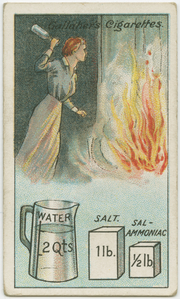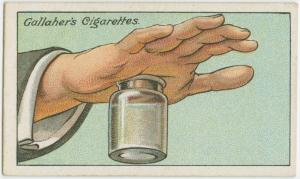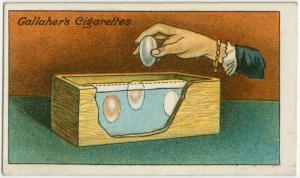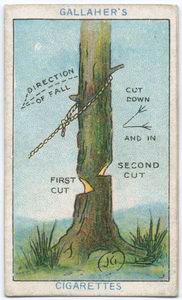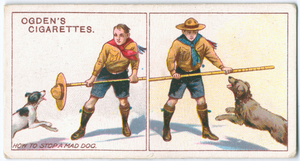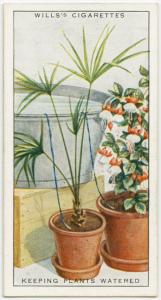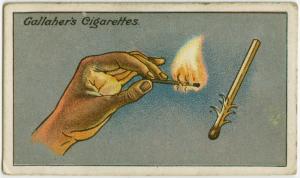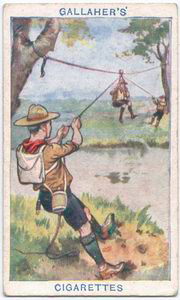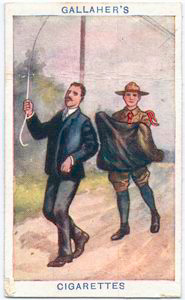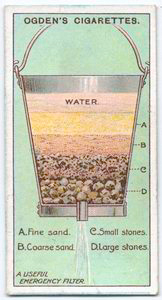Some of us romanticize the past, some of us brush it off altogether — but either way, there’s some good wisdom to be gleaned from generations that weren't bombarded with consumerism, surrounded by chemicals and discombobulated by the crazy pace of the digital world. Yes, we’re talking about the “grandma era.” Known for its wealth of practical solutions, clean living and common sense, the women who forged the road before us were smart cookies. Here are some are some of our favorite grandmotherly habits that are too valuable to be lost.
1. Go for a walk
Urban inhabitants and habitual walkers may know this, but for the rest of us it’s good to remember: Walking is fantastic for both body and soul! If you can walk to do your errands, do it. If you live in an area that requires driving, resume the grandmother tradition of taking a walk after dinner. The health benefits from just 40 minutes of walking a day are impressive; from decreasing your risk of stroke, diabetes and breast cancer to sparking up your sex life and saving money at the gym. Whenever you have the opportunity to walk somewhere, take it.
2. Cook from scratch
Of course we were going to include this on the list; it’s one of the basic rules of grandmotherdom. Even if you get home late from work or you don’t know how to cook or any other number of reasons, we’re telling you, give it a shot. It doesn't have to be labor-intensive (slow cookers and quick recipes abound), it is cheaper (by a lot), it is generally healthier (you can control the ingredients), it can be relaxing and pleasurable (some of us find it quite sensual, actually), it tastes better (once you get the hang of it), and feeding people something you've cooked provides the chef with the profound pleasure of nurturing loved ones. If you’re intimidated, read this: Why do people think cooking is hard?
3. Nurture a garden
And by this, we mean anything from having a giant plot of flowers and vegetables out back to having a pot of basil on your windowsill. The size doesn't matter, the essence is being able to nurture something in the soil and raise it until it can be harvested to eat, make tea, used in a natural remedy or put in a vase on the table. Along the way you will save money, enjoy a therapeutic hobby, have something natural to consume, and revel in the simple joy of self-sufficiency.
And by this, we mean anything from having a giant plot of flowers and vegetables out back to having a pot of basil on your windowsill. The size doesn't matter, the essence is being able to nurture something in the soil and raise it until it can be harvested to eat, make tea, used in a natural remedy or put in a vase on the table. Along the way you will save money, enjoy a therapeutic hobby, have something natural to consume, and revel in the simple joy of self-sufficiency.
- 10 vegetables to grow in your garden
- 5 herbs that belong in every kitchen garden
- 10 amazing healing plants from your garden
And then of course, put things in jars.
4. Don’t eat fake things

Photo: AnikaNes/Shutterstock
OK, for this one we’re going to jump back a few generations of grannies and offer some advice from modern food writer extraordinaire Michael Pollan, who says:
Don’t eat anything your great-great-great grandmother wouldn't recognize as food. Imagine how baffled your ancestors would be in a modern supermarket: the epoxy-like tubes of Go-Gurt, the preternaturally fresh Twinkies, the vaguely pharmaceutical Vitamin Water. Those aren't foods, quite; they’re food products. History suggests you might want to wait a few decades or so before adding such novelties to your diet, the substitution of margarine for butter being the classic case in point.
Right? What would your great-great-great grandmother think of Cheetos or Cheez Whiz? Your reaction should be similar.
5. Write letters
It’s been so long since someone around here (not mentioning any names or anything) took up a pen and wrote more than a few words that their once-precise penmanship is now about as legible as ancient Phoenician. But personal misgivings aside, we should just all write letters on a regular basis. Not emails, not texts, but honest-to-goodness handwritten letters using a pen and stationery and slipped into envelopes and put in the mailbox. This serves many purposes. First of all, think of the poor U.S. Postal Service; it needs letter writers! But also consider how it forces you to slow down, ponder your thoughts, carefully select words you want to commit to paper ... and how the simple act of written communication works as such a good practice of mindfulness. Plus, the recipient of your letter will be grateful to receive something in their mailbox that isn't a bill or a catalog. (It will also ensure that you don’t forget how to form alphabet letters with little strokes of that thing that dispenses ink.)
6. Use natural remedies
If grandpa had a cough in the middle of the night, did grandma get up, get dressed, drive to the 24-hour pharmacy and plunk down $10 for a day-glow concoction of synthetic chemicals? No. She got up and gave grandpa some honey (and in fact, studies show that honey is more effective in treating a cough than cough syrup!). Why would you want to spend a lot of money on questionable chemicals to treat your woes when you have a whole natural medicine cabinet right in your pantry or garden?
For starters refer to the following for basics:
- 10 natural cough remedies
- 10 health benefits of honey
- 13 surprising home remedies for acid reflux
- 12 health benefits of apple cider vinegar
7. Take care of your clothes; mend when needed
Maybe your grandmother didn't actually darn socks but surely she did some mending. In this disposable culture so many things are tossed at the first sign of wear or tear, and that’s sad. And expensive. And just wrong! Paul Dillinger, the head of global product innovation at Levi’s, tells us to treat our clothes like flowers, and he’s got a really good point. With care and nurturing, our clothes will last a lot longer and will love us back. And if they start to flounder a bit, don’t be afraid of a needle and thread or of turning them into something else.
8. Turn off some appliances

Photo: nata-lunata/Shutterstock
We are grateful that laundry day doesn't involve a washboard, but that doesn't mean we have to rely so incessantly on our appliances; they cost money to use and they use power that increases your carbon footprint. Two great places to start are with the clothes dryer and the air conditioner.
After that, challenge yourself to figure out what other appliances you can not use from time to time. If you’re feeling brave, try the TV and other electronics. We’re not suggesting you become a Luddite, but being conscious of your appliance use can be liberating.
9. Use your things until they die
Granted, styles changed less frequently and things lasted longer back in the days when our grandmothers bought stuff, but still. Would your grandmother commit a perfectly good white refrigerator to die an ignoble death at the dump just so she could replace it with a trendy stainless steel one? She wouldn’t think of it, and neither should you. Use your things until they die, then try to repurpose or upcycle them; you will save money and you will alleviate a bit of the stress on our overburdened landfills.
Likewise, apply the habit to food as well and reuse your food scraps until they have nothing left to give; see 20 uses for leftover fruit and vegetable peels for ideas.
10. Clean your home with things you can eat
Wise grandmothers did not reach for highly toxic products like corrosive drain products, oven cleaners, and acidic toilet bowl cleaners or things so laden with synthetic fragrance that they cause respiratory irritation and headache. No, they headed to the kitchen and broke out the baking soda and vinegar. These things are cheaper, safer, and better for the environment in oh so many ways. And they clean effectively, too! Start a nontoxic cleaning kit with the following goodies from your pantry, and if you accidentally get some in your mouth, you won’t have to call the poison control hotline.
Read more: http://www.mnn.com/lifestyle/responsible-living/stories/10-habits-you-should-pick-up-from-your-grandmother#ixzz3BRQ2xn00


